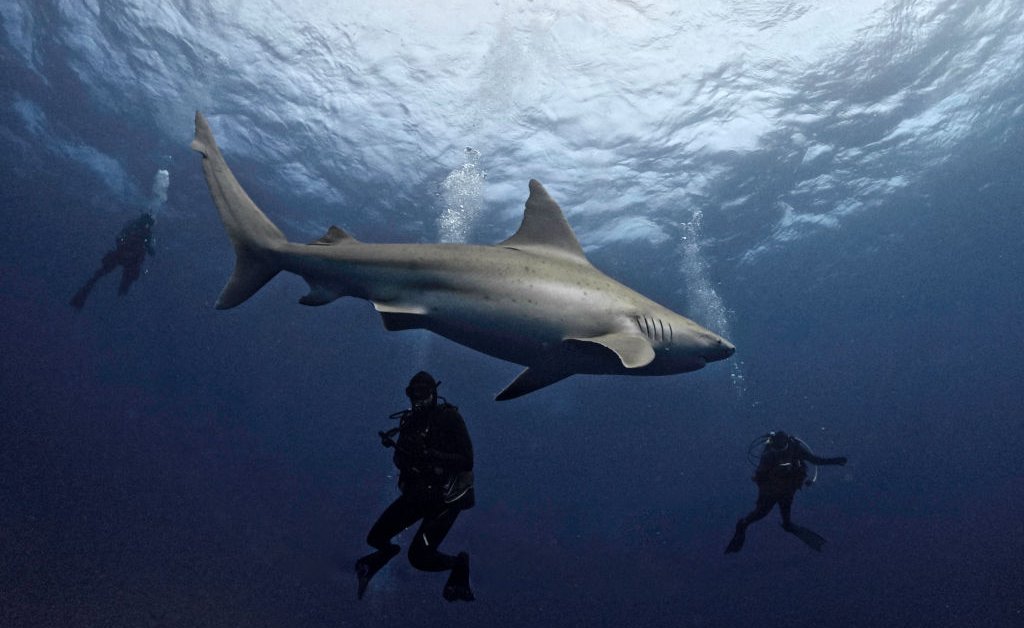The Jaws Effect: Analyzing The Film's Impact On Shark Populations And Conservation Policy

Welcome to your ultimate source for breaking news, trending updates, and in-depth stories from around the world. Whether it's politics, technology, entertainment, sports, or lifestyle, we bring you real-time updates that keep you informed and ahead of the curve.
Our team works tirelessly to ensure you never miss a moment. From the latest developments in global events to the most talked-about topics on social media, our news platform is designed to deliver accurate and timely information, all in one place.
Stay in the know and join thousands of readers who trust us for reliable, up-to-date content. Explore our expertly curated articles and dive deeper into the stories that matter to you. Visit Best Website now and be part of the conversation. Don't miss out on the headlines that shape our world!
Table of Contents
The Jaws Effect: How a Blockbuster Movie Shaped Shark Conservation (and Misconceptions)
The summer of 1975 saw the release of Steven Spielberg's Jaws, a cinematic masterpiece that cemented its place in film history. But beyond its thrilling narrative and iconic score, Jaws had an undeniable, and largely negative, impact on global shark populations and the perception of these magnificent creatures. This article delves into the "Jaws effect," analyzing the film's lasting consequences on shark conservation policy and public perception.
The Rise of "Shark Phobia" and its Real-World Consequences
Jaws effectively instilled a deep-seated fear of sharks in the public consciousness. Suddenly, these apex predators were no longer viewed as vital components of the marine ecosystem, but as mindless, man-eating monsters. This widespread fear led to a dramatic increase in shark hunts, fueled by a misguided belief that beaches needed to be "protected" from these animals.
This wasn't just about recreational fishing. Many coastal communities initiated aggressive shark culling programs, often without scientific justification or consideration for the long-term ecological consequences. The indiscriminate killing of sharks, driven by a panic largely fueled by the film's portrayal, decimated populations around the globe. Species already facing pressure from overfishing and habitat loss were further pushed toward the brink.
The Scientific Response and Shifting Conservation Efforts
The exaggerated portrayal of sharks in Jaws prompted a significant response from the scientific community. Marine biologists and conservationists worked to counter the misinformation and promote a more accurate understanding of shark behavior and their crucial role in maintaining ocean health. This involved extensive research into shark ecology, highlighting their importance in regulating prey populations and maintaining biodiversity.
The ensuing decades saw a gradual shift in conservation policy. Increased awareness of the devastating impact of shark finning (the practice of removing a shark's fins and discarding the body) led to international efforts to regulate and ultimately ban this cruel and unsustainable practice. Many countries introduced stricter fishing regulations, aiming to protect vulnerable shark species and rebuild depleted populations. Organizations like the Pew Charitable Trusts have played a key role in advocating for stronger shark conservation measures. You can learn more about their work .
Beyond the Fear: Understanding Sharks Today
While Jaws undeniably contributed to a period of widespread shark fear and culling, the film's legacy is more complex. Its popularity inadvertently spurred greater interest in marine biology and ocean conservation, ultimately leading to a deeper understanding and appreciation for sharks.
Today, there's a growing recognition of the need for responsible shark management. This includes:
- Implementing stricter fishing quotas: Protecting vulnerable shark species from overfishing.
- Establishing marine protected areas: Creating safe havens for sharks to thrive.
- Combating illegal fishing: Tackling the black market for shark fins and other products.
- Educating the public: Promoting accurate information about shark behavior and their ecological importance.
A Lasting Legacy: Learning from the Past
The "Jaws effect" serves as a stark reminder of the power of media to shape public perception and influence policy. While the film's impact on shark populations was undeniably negative, it also inadvertently sparked a movement toward greater awareness and more effective conservation strategies. By learning from the mistakes of the past, we can work towards a future where sharks are protected and celebrated as the magnificent creatures they truly are. Supporting organizations dedicated to shark conservation is crucial in this ongoing effort. Consider donating to or volunteering with a local marine conservation group near you. The future of these vital ocean predators depends on it.

Thank you for visiting our website, your trusted source for the latest updates and in-depth coverage on The Jaws Effect: Analyzing The Film's Impact On Shark Populations And Conservation Policy. We're committed to keeping you informed with timely and accurate information to meet your curiosity and needs.
If you have any questions, suggestions, or feedback, we'd love to hear from you. Your insights are valuable to us and help us improve to serve you better. Feel free to reach out through our contact page.
Don't forget to bookmark our website and check back regularly for the latest headlines and trending topics. See you next time, and thank you for being part of our growing community!
Featured Posts
-
 Indonesia Ferry Sinks Off Bali Six Confirmed Dead Many Missing
Jul 04, 2025
Indonesia Ferry Sinks Off Bali Six Confirmed Dead Many Missing
Jul 04, 2025 -
 Lgbtqia Marylanders Support Resources Despite National Hotline Shutdown
Jul 04, 2025
Lgbtqia Marylanders Support Resources Despite National Hotline Shutdown
Jul 04, 2025 -
 Trump Tax Reform And Healthcare 5 Potential Negative Impacts
Jul 04, 2025
Trump Tax Reform And Healthcare 5 Potential Negative Impacts
Jul 04, 2025 -
 Fsis Announces Major Nationwide Bacon Recall Due To Safety Concerns
Jul 04, 2025
Fsis Announces Major Nationwide Bacon Recall Due To Safety Concerns
Jul 04, 2025 -
 Metro In Dino A Critical Look At The Long Awaited Sequel
Jul 04, 2025
Metro In Dino A Critical Look At The Long Awaited Sequel
Jul 04, 2025
Latest Posts
-
 Live Stream Details France Vs Iceland World Cup Qualifier Match Today
Sep 10, 2025
Live Stream Details France Vs Iceland World Cup Qualifier Match Today
Sep 10, 2025 -
 France Vs Iceland 2026 World Cup Qualifying Live Stream And Tv Guide
Sep 10, 2025
France Vs Iceland 2026 World Cup Qualifying Live Stream And Tv Guide
Sep 10, 2025 -
 Portugals World Cup Dream Can They Win It All
Sep 10, 2025
Portugals World Cup Dream Can They Win It All
Sep 10, 2025 -
 Mundial 2026 Francia Vs Islandia Horario Y Canales De Tv
Sep 10, 2025
Mundial 2026 Francia Vs Islandia Horario Y Canales De Tv
Sep 10, 2025 -
 Preventing Racist Abuse Englands Plan To Protect Kane And Other Players
Sep 10, 2025
Preventing Racist Abuse Englands Plan To Protect Kane And Other Players
Sep 10, 2025
